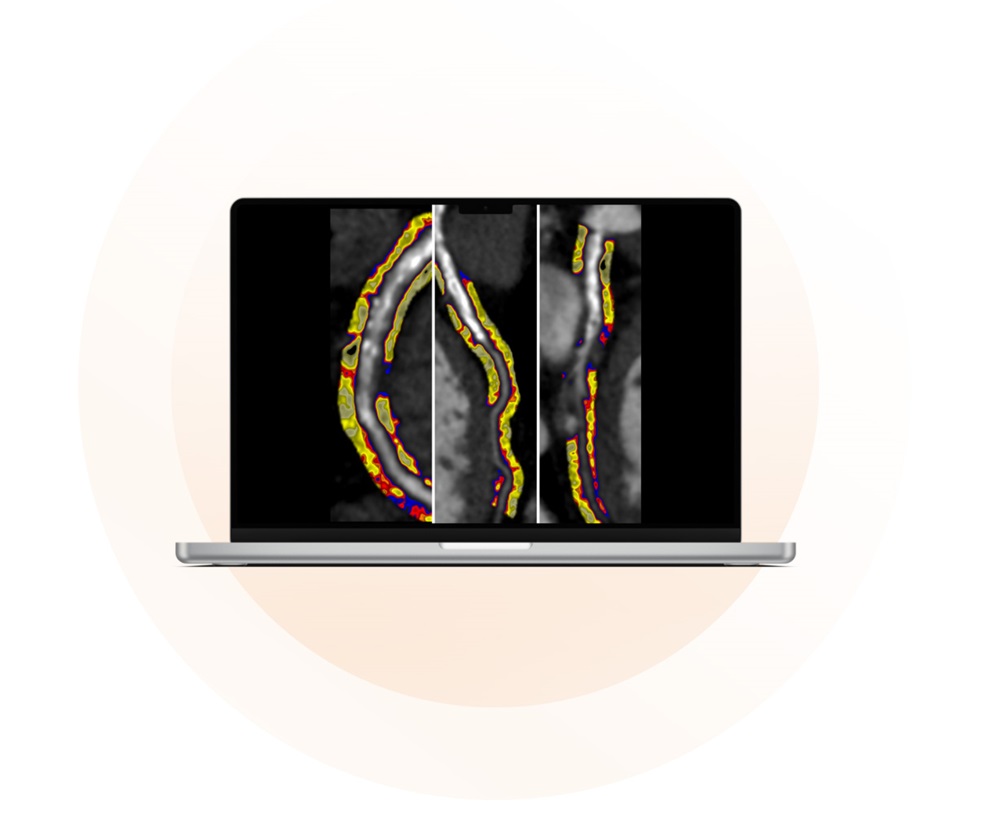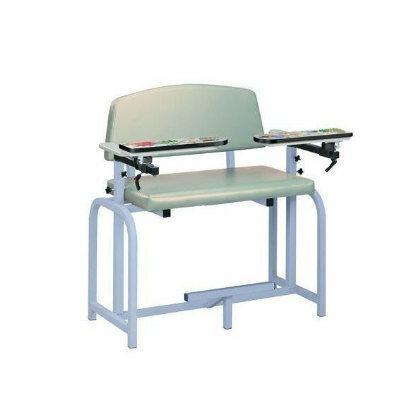AI Technology Predicts Cardiac Events 10 Years in Advance
|
By HospiMedica International staff writers Posted on 05 Jun 2024 |

Current clinical guidelines recommend coronary computed tomography angiography (CCTA) as a first-line investigation for stable chest pain to identify patients who may need coronary revascularization due to obstructive coronary artery disease (CAD). However, this method often identifies many patients who do not have obstructive CAD, as well as those without any coronary atheroma, who are typically reassured and discharged without further treatment or follow-up, leaving their management and outcomes uncertain. Now, a landmark clinical study recently published in The Lancet has demonstrated the efficacy of a novel artificial intelligence (AI) technology in quantifying coronary artery inflammation and predicting cardiac events accurately.
Developed by Caristo Diagnostics (Oxford, UK), the AI-enabled CaRi-Heart technology introduces a new approach to combating heart attacks and other cardiac diseases by detecting hidden inflammation. This technology leverages advanced AI algorithms applied to routine CCTA scans, allowing it to visualize and quantify coronary inflammation, a key but often invisible factor contributing to many fatal heart attacks and strokes. The technology was tested in a landmark study analyzing data from the first 40,000 patients enrolled in the ORFAN registry, which is the largest global study assessing the ability of coronary CCTA imaging biomarkers to predict long-term cardiovascular outcomes.
The study revealed that over 80% of patients who underwent CCTA did not show obstructive CAD at the time of their scans. Despite this, the group without obstructive CAD experienced twice as many fatal and non-fatal cardiac events. Coronary inflammation, measured by Caristo’s CaRi-Heart FAI-Score, predicted these events—including heart attacks and new cases of heart failure—independently of traditional risk factors, routine clinical CCTA interpretations, calcium scoring, and plaque quantification, and it did so up to 10 years in advance. Notably, among those patients who showed no or minimal coronary plaque initially, those with the most abnormal FAI-Score results faced a 9.5-fold increase in risk for cardiac mortality and a 5.5-fold increase in risk for major adverse cardiac events (MACE).
Furthermore, Caristo’s AI-Risk model, the CaRi-Heart Risk Score, surpassed other existing clinical scores in predicting cardiac mortality. When this score was presented to clinicians, it influenced changes in management decisions for 45% of the patients, primarily driven by the need to address previously undetected coronary inflammation. This study underscores the need for robust risk prediction tools that can identify patients at risk due to inflamed coronary arteries, especially those without obstructive CAD. The CaRi-Heart technology could transform CCTA from merely a diagnostic test for selecting a minority of patients for further intervention into a preventive tool that guides the management of all patients undergoing CCTA.
"Coronary inflammation is a crucial piece of the puzzle in predicting heart attack risk,” said Keith Channon, MD, Professor of Cardiovascular Medicine at the University of Oxford, Caristo's Chief Medical Officer. “We are excited to discover that CaRi-Heart results performed exceptionally well in predicting patient cardiac events. This tool is well positioned to help clinicians identify high-risk patients with seemingly 'normal' CCTA scans."
Latest Critical Care News
- Novel Cannula Delivery System Enables Targeted Delivery of Imaging Agents and Drugs
- Ingestible Smart Capsule for Chemical Sensing in the Gut Moves Closer to Market
- Novel Intrabronchial Method Delivers Cell Therapies in Critically Ill Patients on External Lung Support
- Generative AI Technology Detects Heart Disease Earlier Than Conventional Methods
- Wearable Technology Predicts Cardiovascular Risk by Continuously Monitoring Heart Rate Recovery
- Wearable Health Monitoring Device Measures Gases Emitted from and Absorbed by Skin
- Groundbreaking Technology Rapidly Detects Airborne Influenza Viruses
- Handheld Device Could Transform Heart Disease Screening
- Flexible Semi-Autonomous Robot Could Deliver Medicine Inside Body

- Neurorestorative Treatment Strategies Hold Promise for Most Severe Forms of Epilepsy
- Gene Discovery Could Help Grow New Heart Arteries
- Study Discovers Invisible Transmission of Common Hospital-Associated Infection
- Non-Invasive Neuro-Ophthalmology Techniques Could Detect Brain Tumors Earlier
- Mass Manufactured Nanoparticles to Deliver Cancer Drugs Directly to Tumors
- World’s Smallest Pacemaker Fits Inside Syringe Tip

- AI-Powered, Internet-Connected Medical Devices to Revolutionize Healthcare, Finds Study
Channels
Surgical Techniques
view channel
Pioneering Sutureless Coronary Bypass Technology to Eliminate Open-Chest Procedures
In patients with coronary artery disease, certain blood vessels may be narrowed or blocked, requiring a stent or a bypass (also known as diversion) to restore blood flow to the heart. Bypass surgeries... Read more
Intravascular Imaging for Guiding Stent Implantation Ensures Safer Stenting Procedures
Patients diagnosed with coronary artery disease, which is caused by plaque accumulation within the arteries leading to chest pain, shortness of breath, and potential heart attacks, frequently undergo percutaneous... Read more
World's First AI Surgical Guidance Platform Allows Surgeons to Measure Success in Real-Time
Surgeons have always faced challenges in measuring their progress toward surgical goals during procedures. Traditionally, obtaining measurements required stepping out of the sterile environment to perform... Read morePatient Care
view channel
Portable Biosensor Platform to Reduce Hospital-Acquired Infections
Approximately 4 million patients in the European Union acquire healthcare-associated infections (HAIs) or nosocomial infections each year, with around 37,000 deaths directly resulting from these infections,... Read moreFirst-Of-Its-Kind Portable Germicidal Light Technology Disinfects High-Touch Clinical Surfaces in Seconds
Reducing healthcare-acquired infections (HAIs) remains a pressing issue within global healthcare systems. In the United States alone, 1.7 million patients contract HAIs annually, leading to approximately... Read more
Surgical Capacity Optimization Solution Helps Hospitals Boost OR Utilization
An innovative solution has the capability to transform surgical capacity utilization by targeting the root cause of surgical block time inefficiencies. Fujitsu Limited’s (Tokyo, Japan) Surgical Capacity... Read more
Game-Changing Innovation in Surgical Instrument Sterilization Significantly Improves OR Throughput
A groundbreaking innovation enables hospitals to significantly improve instrument processing time and throughput in operating rooms (ORs) and sterile processing departments. Turbett Surgical, Inc.... Read moreHealth IT
view channel
Printable Molecule-Selective Nanoparticles Enable Mass Production of Wearable Biosensors
The future of medicine is likely to focus on the personalization of healthcare—understanding exactly what an individual requires and delivering the appropriate combination of nutrients, metabolites, and... Read more
Smartwatches Could Detect Congestive Heart Failure
Diagnosing congestive heart failure (CHF) typically requires expensive and time-consuming imaging techniques like echocardiography, also known as cardiac ultrasound. Previously, detecting CHF by analyzing... Read moreBusiness
view channel
Expanded Collaboration to Transform OR Technology Through AI and Automation
The expansion of an existing collaboration between three leading companies aims to develop artificial intelligence (AI)-driven solutions for smart operating rooms with sophisticated monitoring and automation.... Read more
















